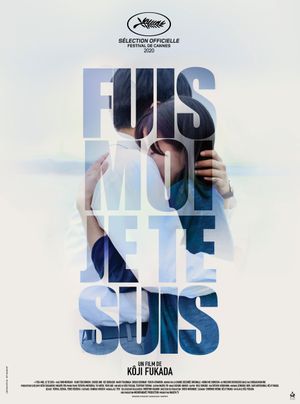Vu en salle, immédiatement après la première moitié du film.
**
2nd half:
see first half
and it's going too hard, finally inserting the invisible character of the lover only to restart the intrigue in another direction (rather symptomatic of the comic book origin) and produce even more "dramatic" moments while still exploring work,
the guardian angel mafioso that I suspected finally shows itself (a character so useful to trigger anything in the scenario),
it could have stopped on three occasions in the last twenty minutes, making me finally lose my temper, only to settle on what was to be expected: the destined lovers' réunion and reenactment of their meeting.
A classic "bland boy meets alien girl" story stretched over 4~10 hours thanks to Japan society (work, family, life expectations...) providing everything needed for drama and tragedy and restraining the characters.
One could sense an attempt at dissecting those very recognizable heroes by piling problems on the woman (both coming from her and her terrible circumstances) and constantly interrogating the nice man's intentions (although he ends up getting sex midway unlike most characters of the same type) but it ends up turning the whole fiction into a never-ending rescue mission restarting every time you think it's done.
The main appeal, at least for the foreigner, relies on the observation of modern Japan, the universe its enterprises are, and its society's expectations, all of this making for an exotic and intriguing world to our eyes. On the other hand, the romance will please mostly the easily satisfied audience, given how invisible it is from the beginning and that the film never cares to give its viewership any semblance of reason : one must simply believe it despite the fact the characters entire shared history plays before one's eyes.
The TV technical limitations are visible but never get in the way, but the serial origin (drama, comic book) may annoy with its reliance on "secrets" regularly delivered to restart the intrigue and its too visible chapters. The visible cardboard (or rather manga) characters are, on the contrary.
The summary nature of the film leads to some moments feeling like a whole chunk is gone, the audience barely saved from crash by dialogue.
The rather stripped down style may either come from Fukada applying his own on the work he adapted, or from the comic being a realistic one. Either way, it does not stand out among other films made by the director.
Audience: 3/240 (1st screening, 10 mn after the 1st half.)
Score: 4/10
Enjoyment: 3/5 (funny exaggerations)
Probably a Truffaut case: the kind of indulgence certain revered filmmakers are able to perform, jumping on their notoriety to adapt whatever minor work they love and expose it for all to view.
Watch it for the context or don't.

